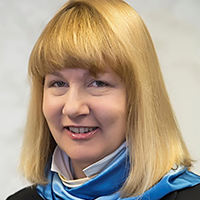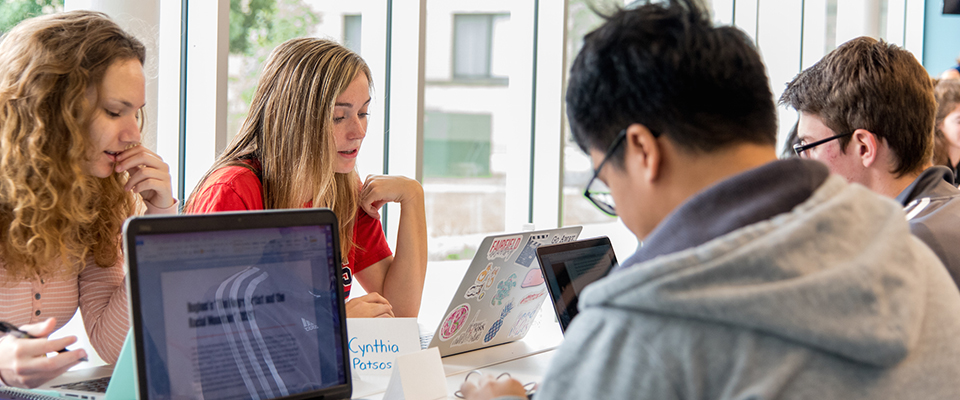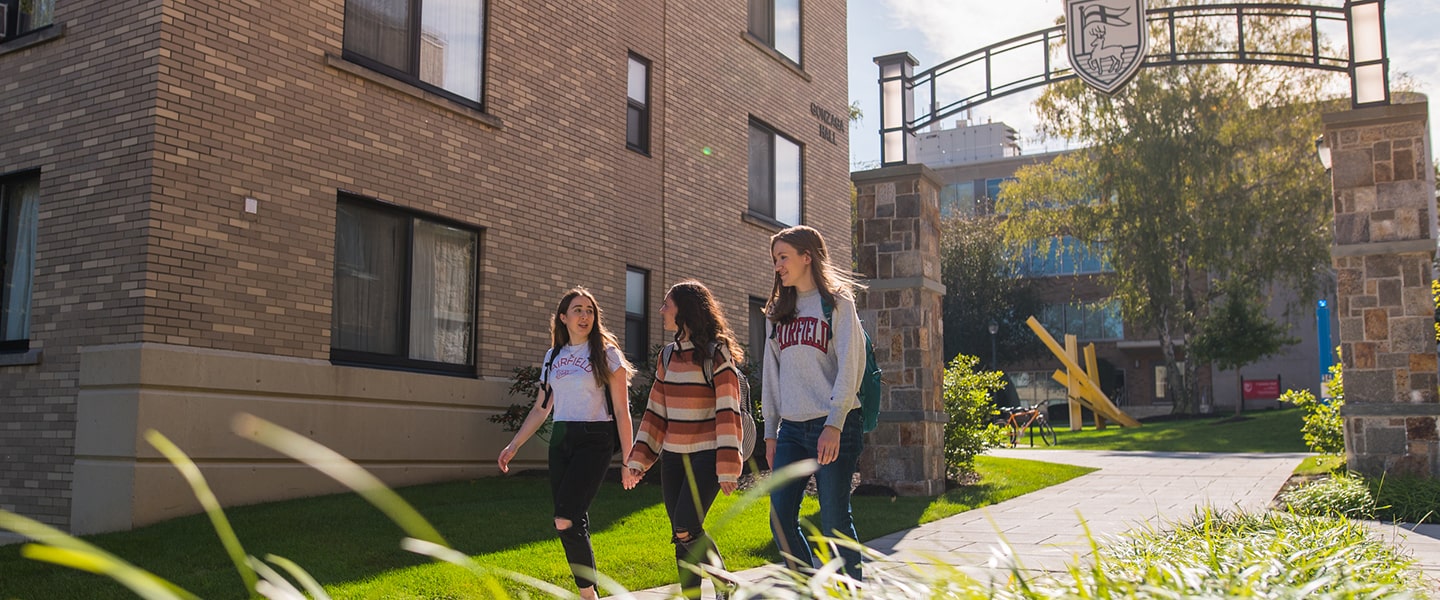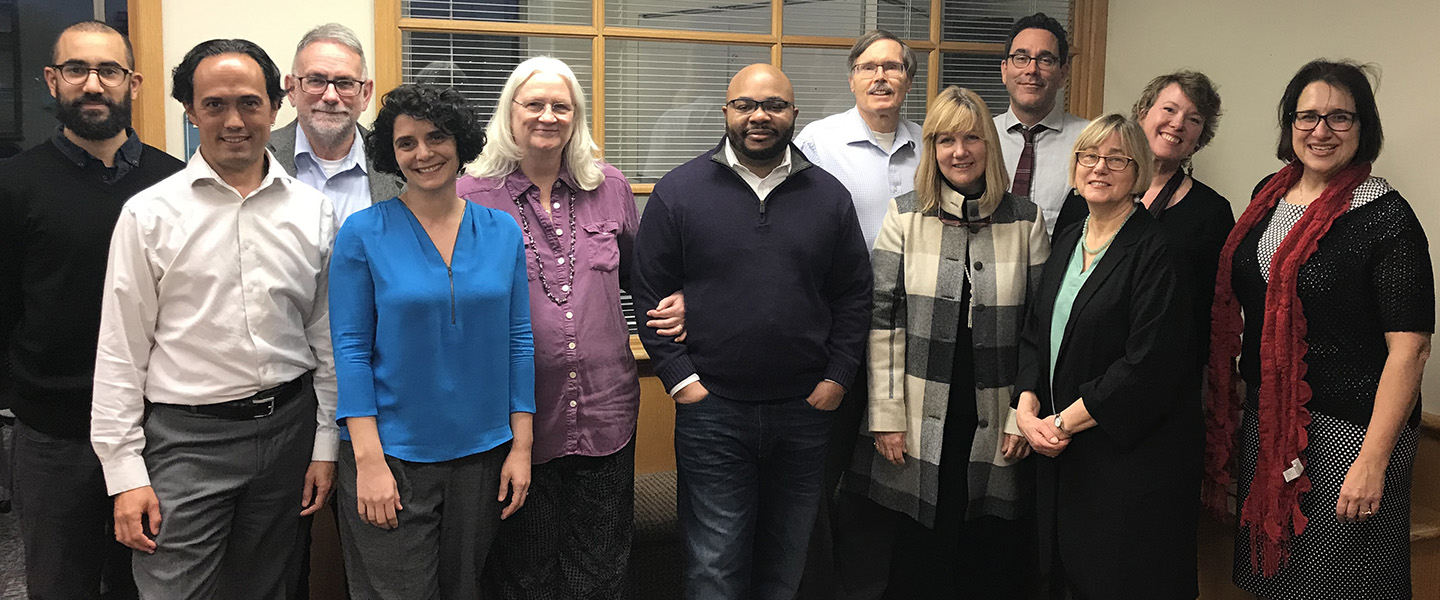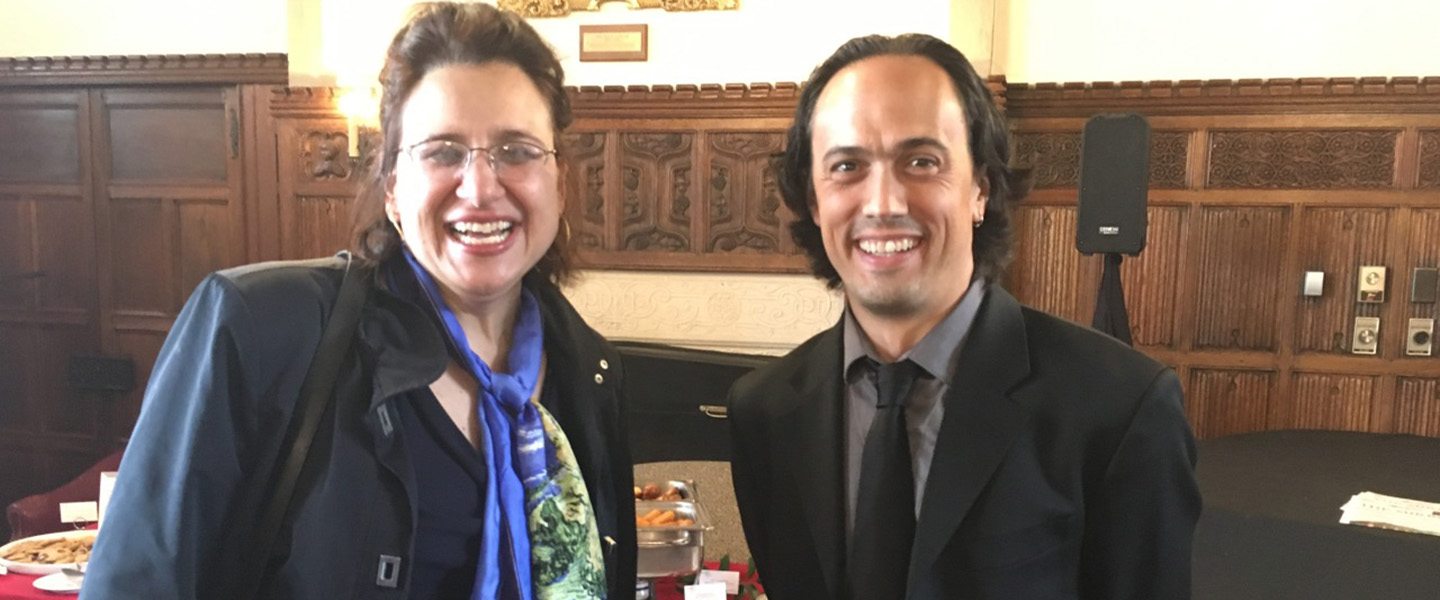On This Page
Program Overview
The Department of History at Fairfield University is dedicated to teaching its students to understand today’s world through the study of the past. We examine and record the daily lives, conflicts, cultures, relationships, work, beliefs, and morals of people throughout time.
Offered as both a major and a minor, our program introduces students to the broad spectrum of history. Here, students build their skills of reading, writing, and analyzing historical materials. We do not emphasize a particular region of the world, period of history, or a single way to interpret it, giving way to a wide range of ideas and approaches.
Our curriculum invites you to conduct research, analyze historical documents, and attend a wide array of seminars covering the full range of historical periods from ancient to modern, including all regions of the globe and a variety of thematic approaches. Working collaboratively in small classes, along with an exciting faculty, you will hone the skills and outlook needed to succeed as a thoughtful and engaged global citizen.
Requirements
For a 30-credit major in history students complete the following:
- One introductory course (HIST 1100-1199 or CLST 1115 or CLST 1116)
- A minimum of nine upper-division history courses (intermediate: HIST 2200-2299 or advanced: HIST 3300-3390)
- At least four upper-division courses must be designated advanced (HIST 3300-3390)
- Two upper-division courses must be in European history; two must be in U.S. history; and two must be in non-Western history (Africa, Asia, Latin America, Middle East)
- At least one upper-division course must focus on a period prior to 1750
- At least one upper-division course must focus primarily on a period after 1750
For a 15-credit minor in history, students complete the following:
- One introductory course (HIST 1100-1199 or CLST 1115 or CLST 1116)
- Four other upper-division courses (intermediate: HIST 2200-2299 or advanced: HIST 3300-3990)
- At least one upper-division course must be designated advanced (HIST 3300-3990)
- At least one upper-division course must be in European history, one must be in U.S. history, and one must be in non-Western history (Africa, Asia, Latin America, Middle East)
To ensure a well-planned and coordinated program, students are required to work closely with their history faculty advisor.
History majors and minors who elect a minor in Educational Studies and who have been admitted to the 5-year Integrated Bachelors-Masters Degree and Teacher Certification Program will fulfill the State of Connecticut content requirements for certification in Social Studies through their coursework for the History major or minor, plus 18 credits in other social sciences. Please consult with Dr. Shannon King in the History Department and Dr. Pierre Orelus in the Department of Educational Studies and Teacher Preparation, School of Education and Human Development, for additional information. See catalog entry for Program in Education.
The student majoring in History will be able to do the following:
- The Idea of History
- Analyze history as a complex process in which economic, geographical, political, social, cultural, intellectual, religious, and technological forces, among others, interact dynamically over time, often producing change.
- Contribute to contemporary social dialogue by using this analysis.
- Research Skills
- Identify, select, read, and critically analyze primary and secondary sources as he/she crafts historical arguments.
- Demonstrate a complete range of research skills, including the use of library reference tools and databases, periodical literature, specialized and general archival materials.
- Use proper historical citation and reference methods.
- Compose productive research questions.
- Synthesize and interpret rather than merely summarize the literature under consideration.
- Writing Skills
- Write effective narrative that critically explores the past and the dynamics of change over time.
- Express, in clear and grammatically-correct prose, comprehensive analysis, synthesis, and evaluation of primary and secondary materials.
- Depth of Knowledge and Critical Thinking
- Demonstrate a deep and extensive understanding of the history of several specific nations, regions, or peoples: an understanding that encompasses all of the forces and patterns that created them.
- Demonstrate an understanding of the basic historiography (including theory and methodology) of those specific nations, regions, and peoples.
- Evaluate conflicting interpretations in primary and secondary sources, taking into consideration authors’ perspectives (nationality, gender, social class, culture, religious orientation, etc.), the period in which the work was written, the intended audience, and the purpose and circumstances of its production.
Course Offerings
| HIST 1100 | Origins of the Modern World Since 1500 |
| HIST 1102 | China, Japan and Europe |
| HIST 1103 | Europe, Russia, and the World, 1300-1918 |
| HIST 1104 | War and Conflict in Western History, 1490-1989 |
| HIST 1105 | Utopian Ideas and Practice Since 1500 |
| HIST 1106 | Imperialism and Colonialism in World History, 1500-Present |
| HIST 1107 | The Silk Road: Crossroads to Civilization |
| HIST 1110 | Modern Europe: From Humanism to Hitler |
| HIST 1112 | Germany Between Dictatorship and Democracy |
| HIST 1128 | Renaissance England |
| HIST 1146 | Women's History as U.S. History |
| HIST 1188 | Colonial Latin American, 1492-1800 |
| HIST 1189 | Modern Latin America, 1800-Present |
| HIST 2201 | History of Western Science |
| HIST 2202 | Health and Healing in America 1650-1980: History of Western Medicine |
| HIST 2203 | European Society in the Middle Ages |
| HIST 2205 | Anti-Semitism: Medieval to Modern |
| HIST 2210 | The Third Reich |
| HIST 2212 | Modern Germany: From Reich to Republic |
| HIST 2213 | In the Wake of Destruction: Europe Since World War II |
| HIST 2214 | Modern Jewish History: 1750 to Present |
| HIST 2215 | Ireland from the Middle Ages to the Present |
| HIST 2216 | Rise of the British Empire |
| HIST 2217 | Britain and its Empire Since 1800 |
| HIST 2220 | Ancient African Civilizations |
| HIST 2221 | CLST 2221: The Hellenistic World, 336-30 BC |
| HIST 2222 | CLST 2222: The Roman Revolution |
| HIST 2223 | CLST 2223: The Roman World in Late Antiquity, 284-642 AD |
| HIST 2224 | The Byzantine World |
| HIST 2230 | Early Modern France: Passion, Politics, and the Making of National Identity |
| HIST 2235 | Race in Americas |
| HIST 2237 | The American Prophetic Tradition |
| HIST 2238 | Nineteenth-century United States |
| HIST 2239 | Twentieth-century United States |
| HIST 2240 | The Personal is Political: Women's Activism in the 1960s |
| HIST 2242 | Immigration, Race, and Ethnicity in U.S. History |
| HIST 2245 | Feminism in the United States |
| HIST 2246 | Women and Gender in U.S. History |
| HIST 2247 | Family and Sexuality in U.S. History |
| HIST 2248 | Writing the Self: Autobiography in Early America |
| HIST 2250 | America Enters the World: United States Foreign Relations, 1763 to 1900 |
| HIST 2251 | The American Century: The United States and the World since 1900 |
| HIST 2253 | Early America to 1800 |
| HIST 2257 | Who Built America? Working People in American History |
| HIST 2262 | African-American History, 1619 to 1865 |
| HIST 2263 | Inventing Themselves: African-American Women in U.S. History |
| HIST 2264 | African-American History, 1865 to Present |
| HIST 2265 | The History of the Indian Subcontinent: Colonialism, Nationalism, and Democracy, c. 1857-today |
| HIST 2266 | Gandhi in the Modern World |
| HIST 2270 | History of Global Humanitarian Action |
| HIST 2271 | Introduction to Russian History, Culture and Civilization |
| HIST 2272 | Russia, 700-1700: History and Myth |
| HIST 2273 | History and Culture of Central and Eastern Europe since 1945 |
| HIST 2274 | L 260: Historical Perspectives on Contemporary Global Crises |
| HIST 2275 | Russia's Road to Revolution, 1689 to 1917 |
| HIST 2276 | St. Petersburg in Russian History |
| HIST 2277 | The Global Cold War |
| HIST 2278 | A Cultural History of China's Relations with the United States |
| HIST 2279 | China from Classical Time to the 1800s |
| HIST 2280 | The West and the Middle East |
| HIST 2281 | Portrait of the Arabs |
| HIST 2284 | 20th-Century Russia |
| HIST 2285 | Modern China: 1800 to Present |
| HIST 2286 | The Rise of Modern Japan: 1800 to Present |
| HIST 2290 | The History of the US-Mexico Border |
| HIST 2297 | Power, Politics, History: US-Latin American Relations from the 1800s to the Present |
| HIST 2298 | Historical Geography |
| HIST 3302 | History and Memory: Coming to Terms with Traumatic Pasts |
| HIST 3303 | What If? Alternate History and the Historical Imagination |
| HIST 3304 | The Holocaust in History and Memory |
| HIST 3313 | Godless: Atheism and Skeptical Thought in the West |
| HIST 3315 | Ireland Since the Famine |
| HIST 3323 | England: Reformation to Revolution |
| HIST 3324 | CLST 3324: Ancient Greece, Rome and Africa |
| HIST 3325 | CLST 3325: Athenian Democracy and Empire |
| HIST 3331 | The American Revolution and the New Nation |
| HIST 3335 | Civil War and Reconstruction |
| HIST 3337 | Race, Violence and Punishment in the United States 1865-1976 |
| HIST 3346 | Saints, Sinners, and Sisters: Women and Religion in American History |
| HIST 3349 | The 1930's in America |
| HIST 3350 | Introduction to Public History |
| HIST 3356 | History of the Cold War |
| HIST 3366 | Gender, Culture, and Representation: Women in China and Japan 1600 to Present |
| HIST 3367 | East Asia in 20th-Century American Wars |
| HIST 3368 | Ideas in Action: Decolonization in World History |
| HIST 3371 | Arab-Israeli Conflict |
| HIST 3372 | Terrorism in History |
| HIST 3373 | History of North Africa |
| HIST 3383 | From Chocolate to Cocaine: The History of Food & Commodities in Latin America, 1500 to Present |
| HIST 3385 | Comparative Russian Revolutions |
| HIST 3391 | The Meanings of History |
| HIST 3980 | History Internship |
| HIST 3900 | Special Topics in History |
| HIST 3990 | Independent Study |
| CLST 1115 | Greek Civilization * |
| CLST 1116 | Roman Civilization * |
* Fulfills the core requirement in history.
Stag Spotlight
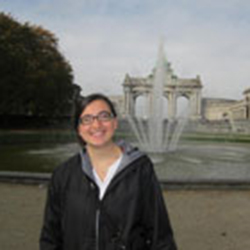
Elizabeth Morena
Class of '15
Major/minor: History with a minor in education
Extracurricular Activities: Honors Program. Capstone Project: The Conversion of the Frankish King, Clovis, in the 5th Century. History Club.
Why did you choose to major in history?
I majored history because I've always loved to hear stories about people, places, and events of the past. Throughout my studies at Fairfield, I have learned to love history even more. I've been exposed to many different historical perspectives, and I have had the chance to study many different types of history. Through the great program and engaging history professors here at Fairfield, I have learned to think critically about the world. I have also had the opportunity to be President of the History Club, a fantastic way to interact with other history students and professors. Hosting cultural events, movie nights, and traveling to historical museums with the support of the History Department has brought history to life and has enhanced my experience here at Fairfield University. Overall, my decision to become a history major has led me to meet great people, and has enriched my academic experience. In the future, I hope to pursue an M.Ed, with a focus in secondary education and history. My extensive background in history through Fairfield has prepared me very well for my goal of becoming a high school history teacher.
More About History
Life After Fairfield
A great range of career opportunities is open to history majors. Graduates have gone into many fields, including:
- Business Management
- Consumer Advocacy
- Digital Research/Analysis
- Diplomacy/Foreign Service
- Finance
- Government
- Intelligence Analysis
- Journalism
- Law
- Law Enforcement
- Museum Support
- Political Activism
- Public Relations
- Social Work
History students also qualify for social-studies certification as secondary school teachers.
Recent graduates have found jobs as:
- Associate Executive Director for a Health Foundation
- University Coordinator of Regional Support Activities
- Project Engineer
- Museum Collection Specialist
- Marketing Campaign Manager
- Digital Agency Chief Operating Officer
- Elected City Alderman
- Attorney Intern for Municipal Children’s Services Agency
- Museum Assistant Archeologist
- New York City Opera Assistant Manager
Those seeking higher education have been admitted to PhD and JD programs at the following academic institutions:
- Boston College
- Columbia University
- Hofstra University
- New York University
- St. John’s Universities
- Syracuse University
- University of California, Los Angeles
- University of Connecticut
- University of Wisconsin – Madison
- Vanderbilt University
- Yale University
Learn how Fairfield's Career Services can support your post-graduate goals, and how our tight-knit alumni network can build career and mentoring opportunities that last a lifetime.
Diversity and Inclusive Excellence
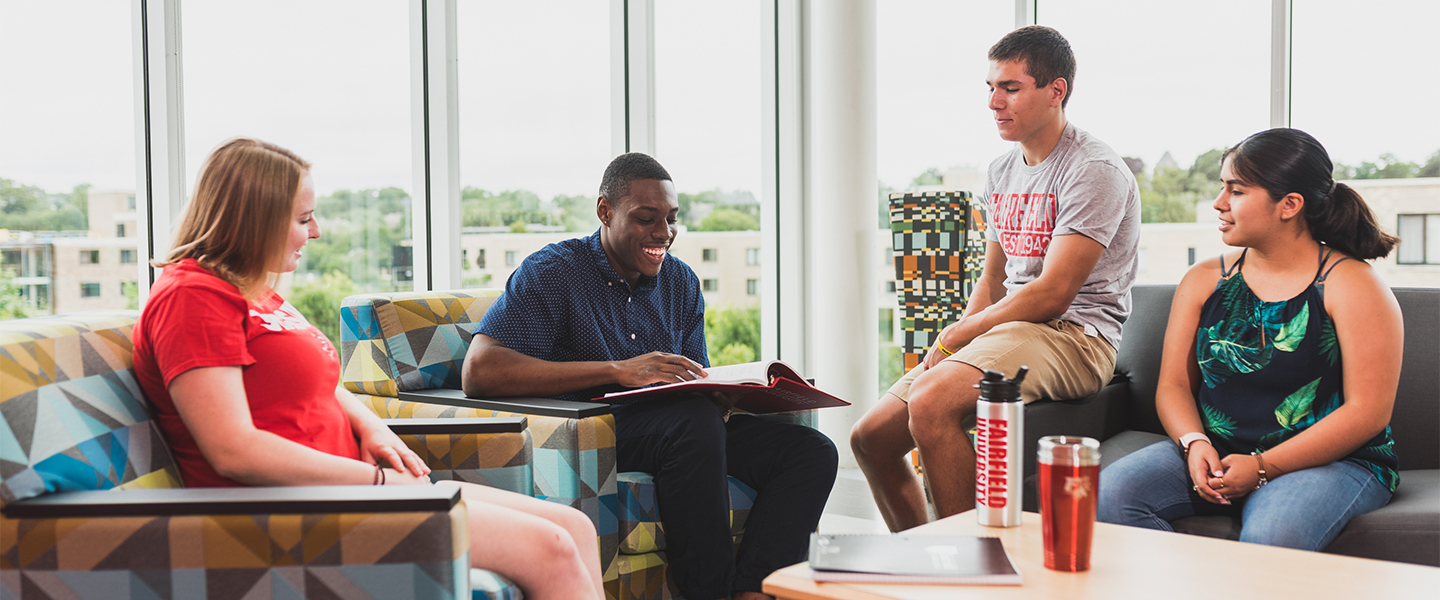
As a Jesuit, Catholic university, Fairfield is dedicated to diversity and inclusion; to radical hospitality in service of racial, social, and economic justice.
Internships
Qualified majors may complete an internship at a local historical site to gain real-world experience in archival work and public history research and writing, such as the:
All of the above provide training in research and library work and the opportunity to write an original research paper. Other internships are available through the College of Arts & Sciences.
Faculty
The College of Arts and Sciences at Fairfield University is home to a vibrant community of engaged faculty, dedicated staff and accomplished internationally-recognized scholars devoted to the process of invention and discovery and excited by the prospect of producing knowledge in the service of others. Meet the dedicated members of our History Department.
History Department News
From topical round-table discussions and lectures to celebratory events and faculty achievements, check-out the latest news and events from the Department of History.
Faculty Publications
The distinguished faculty members in Fairfield University's History Department come from varied academic backgrounds and possess diverse and interdisciplinary research interests. To learn more about their individual areas of expertise, explore the depth and breadth of our faculty’s most recent publications.

